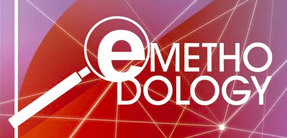It’s time for some exciting events!! Let’s go on a little bit of a time travel as we attempt to anticipate the future and reflect upon the past, while also discussing the value of knowledge and methodologies of the digital age for research in the social sciences and humanities.
As always, if you want your event to feature in our next event list or if you feel like writing a short report, do not hesitate to get in touch with Andrea at andreak@allegralaboratory.net or Aude at audef@allegralaboratory.net

19-21 September 2017, Bern, Switzerland
Many laws are geared towards organising and regulating the future. Some of these pursue specific developmental goals (‘Social engineering’) and attempt to shape the future by giving incentives for achieving those goals; others are geared more specifically toward preventing future events and diminishing risk. Moreover, the regulation and prevention of events in the future is a legal field of increasing importance; this is related to rapid technological change that poses problems of unknown effects ever more frequently, think of Nanotechnology, Climate change, Robotics and the like (see Beck 1996). The hopes of shaping the future by legal regulation have diminished in the face of the seemingly autonomous dynamics of distributed agency in a globalised world, and have given way to logics of prevention.
The regulation of the future is, of course, implicit in law generally, as law is based on the assumption that it orients action by people and thereby produces wanted outcomes in the future and prevents unwanted ones, by threat of sanction or by award of benefit. However, theories about law’s effect on human action change. They change in accordance with changing understandings of safety and security and related ideas of what it needs to produce or safeguard social order. Whether thus preventive logics or those, which are confident about the possibilities of law to shape the future, prevail – in short: how hope and fear are inscribed in law – is a matter of social analysis. [more]
Deadline for submissions of abstracts: 1 March 2017
Conference: The family, human rights and internationalism: global historical-sociological perspectives
10-11 November 2017, University of Göttingen, Germany
Historical and historical-sociological research on the history of human rights discourse and law has abounded in recent years. However, it has neglected one of the key issues that informed early thinking about human rights: the family as a protected category. This conference addresses this issue by approaching it from the perspective of global historical sociology. In this way, the conference also sheds important light on the historical diffusion of cultural and legal norms on the family and sexuality. It reflects on various religious and other imaginaries of the family and considers how they emerged and spread across the globe. How have human rights law and discourse intersected with the family and sexuality? How has this connection taken shape in different historical contexts? And, how has it evolved since the nineteenth century?
The conference brings together historians and historical sociologists interested in the global development of norms and practices related to the family through international law, international institutions, migration and empires. Papers are invited that focus on these issues from a historical perspective for the nineteenth and twentieth century. They can consider various mechanisms through which norms on the family intersected with ideas about human rights, for example, through empires and their collapse; intellectuals; war; and, migration, amongst others. Papers on regions around the globe are welcome, as are contributions on relevant international bodies and individuals who have been influential in this regard. [more]
Deadline for submission of proposals: 31 March 2017

30-31 October 2017, Hawaii Convention Center, Honolulu, Hawaii
With the theme of ‘Resilience’ the conference will promote a critical understanding of the innovative and organic approaches from the humanities and social sciences toward sustainability. Our shared biosphere and rapid globalization ensure no country is immune from another’s problems and risks, which means a collective and multidisciplinary approach is essential for integrating environmental and cultural sustainability.
Contemporaries tend to define sustainability as environmental issue; however, it is important to take a holistic perspective that embraces the critical relationship between ecological sciences and humanities. This is evident as human communities as well as their diverse biological and cultural heritage are increasingly threatened by mounting environmental and societal problems from climate change and exploitation of finite resources to the inequities and human costs of unsustainable practices and technologies. [more]
Deadline for submission of proposals: 28 July 2017

9-10 March 2017, University of Warwick, England
Wherever there emerge value judgments, classifications and hierarchies there occurs valuation – social construction of values. Recent years have seen the emergence of a new field of scientific inquiry – Sociology of Valuation and Evaluation (SVE), which deals with valuation practices in many areas, such as social relations, economics, knowledge production. It is on this last area that we wish to focus on during a workshop on science.knowledge.[e]valuation.
As researchers we encounter (and perform) valuation every day– be it in assessing our own and other researcher’s work, writing grant proposals, dealing with Higher Education policy and in a host of other situations. But construction of values related to knowledge(s) is by no means limited to academia. We can think of valuation practices taking place in relation to science in non-academic context, but also of construction of values in the political sphere, in economics, education or in every-day micro practices. [more]

29-30 March 2017, Wroclaw, Poland
The International Academic Conference “e-methodology” is dedicated to the difficulties connected with research in social sciences and humanities conducted by means of the Internet, as well as the opportunities that it provides. We accept theoretical lectures on this subject and lectures presenting the results of research conducted on or by means of the Internet (understood as a research environment and/or a research tool). We would like the authors to pay special attention to the specificity of Internet methodology.
We propose three sections:
1) “About the Internet” – Theory. (Theoretical papers on the difficulties and the opportunities created by using the Internet in scientific research)
2) “On the Internet”- Research (The results of research conducted by means of the Internet)
3) “With the Internet”- Projects (Project reports and research/educational projects presenting the opportunities provided by using the Internet) [more]
Deadline for submission of abstracts: 28 February 2017

11-13 September 2017, Leeds, England
Drawing on Marcuse’s plea to translate urbanists’ knowledge into action (2009), this panel calls for contributions exploring the relationship between academic research and organizations centered on issues of urban justice in the context of contemporary urban social movements and organizational politics.
The panel favors contributions featuring case studies that can illuminate the comparative investigation of how urban scholarship and reflective urban practice can positively contribute to justice struggles and political change, and the enabling role the academy can have throughout the tormented journey to produce “cities for people, not for profit” (Brenner, Marcuse, and Meyer 2012).[more]
Deadline for submission of abstracts: 10 March 2017


